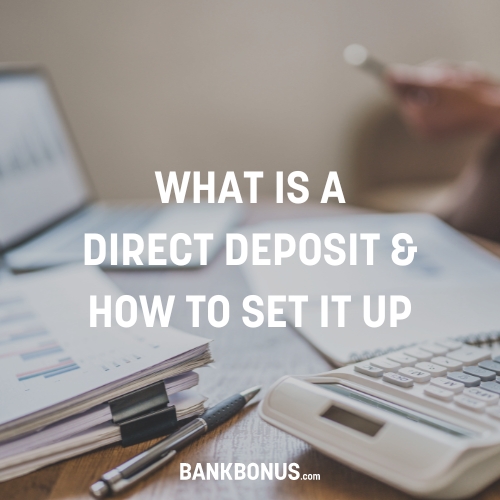When asking how long it takes for a check to clear, there is no single answer. The truth is that several factors come into play that can lengthen the time for you to receive all the money.
While checks are not as popular as they once were, they are still widely used across the US to make and receive payments.
Federal and state governments, as well as private individuals, use checks to make payments. In 2018 alone, some 16 billion checks were issued in the United States, worth a whopping total of $26 trillion.
Checks have many advantages – they have been around for a long time, and most people are familiar with how they work.
However, like most forms of payment, they also have some disadvantages – like the amount of time they can take to clear.
Unlike electronic transfers, which offer short lead times, checks can take longer.
In this article, we will be covering multiple scenarios to give you a pretty good idea of when you can expect to receive funds following a check deposit.
We’ll also cover some of the potential problems you might encounter so that you’re aware and can prevent them.
Factors Affecting How Long It Takes a Check To Clear
Here are some things to be aware of when asking how long a check will take to clear.
The Type of Check
The first thing that you need to be aware of is that different check types are treated differently. Understanding the type of check you have can help you plan ahead and avoid disappointment.
In some cases, it will also help you avoid fees, so be sure to continue reading to learn how to avoid common mistakes.
Most Common Check Types:
- Checks issued by the state or federal government
- Certified checks
- Cashier’s checks
- Money orders
- Electronic checks
To make sure you get the next business day’s clearance, you will need to deposit the check at the bank. If you deposit the check via an ATM, it will take an extra day. If you send the check by post, it will clear the business day after it is received and processed.
One essential thing to keep in mind here is that you should deposit checks at an ATM that belongs to your bank.
If you deposit the check at an ATM that belongs to another bank, it can take up to 5 business days.
On the other hand, mobile check deposits via the mobile banking app are usually available immediately. Still, they can take up to 2 business days.
Typically, the money will go straight into your checking account for the total amount of the check.
Day of Deposit
Keep in mind that it might take longer if you deposit the check after the cut-off time or over the weekend or a bank holiday. Banks don’t process checks on those days.
If you happen to deposit a check on any such day, consider the next business day as the day you deposited the check.
Personal checks can be slightly more complicated.
Several additional reviews are required, which can lengthen the amount of time it takes for the check to clear.
We will discuss all of the factors that come into play when cashing a personal check next.
Cashing Personal Checks
Personal checks follow a different procedure than government and certified checks.
What is a Personal Check?
A personal check is a check that a private individual or a company issues. Money will typically come from the payer’s account, a money market account, or a checking account.
Because the check is not coming from a financial institution, there is no guarantee that there is enough account balance to cover the check.
While the account holder is responsible for ensuring they have enough funds to cover the check amount, bad checks happen.
As such, your bank or credit union will take extra precautionary measures before giving you the money.
When Will You Receive the Money?
When it comes to cashing your personal checks, the bank may choose to make the first $200 of the check amount available by the next business day.
The amount you’ll receive is not set in stone. The bank may choose to make less or more money available to you, depending on their funds’ availability policy.
A word of caution: even if the bank is making a portion of the money available, it doesn’t mean the check has cleared.
The bank does this to comply with a federal reserve regulation that tells the banks when they need to make funds available. The regulation is known as Federal Regulation CC.
Think of this as credit lent to you based on the deposited check. If you withdraw the money and the check doesn’t clear, you’re still on the hook for the funds withdrawn.
If the bank subsequently tries to take the money back and there aren’t enough funds, you might be liable to pay overdraft fees. Be careful with what you withdraw and when.
If you can wait until the check clears, it might be better to do so, especially if you don’t know the person or company that gave you the check.
You might also run into other issues, like if you have written a check to someone yourself who might try to cash it only for your check to bounce.
It is always far better to ensure the check has cleared before withdrawing any money from that check.
Check Clearing Times
Most checks will take two business days to clear.
However, they can take a little longer – a maximum of 5 business days – or return as non-cashable.
This timeframe stipulation forms part of the federal regulation we mentioned earlier.
One important thing to note here is that the regulation does include a stipulation through which the bank can take longer to clear the check, provided that it has a good reason for this.
Reasons for a Hold
While a check is waiting to clear, it is effectively on hold.
In most cases, this period extends for the duration that the bank has to wait until it receives funds from the bank account of the person or company that wrote you the check.
There are several reasons why a check can take longer than usual. The first step that you need to take is to look at the receipt given to you when you deposited the check.
The receipt should include the expected date of when the funds should clear. If that date has already passed, or you have misplaced the receipt, you can call the bank for assistance.
Let’s have a look at some of the more common reasons why a check can stay on hold for longer.
Check Amount
If it’s a check for a significant amount, it can take longer before you see the money in your account. Suppose the total payable amount is $1,500 or more. In that case, you can expect to wait ten days or more until you get the all-clear, especially if it’s your first time trying to cash a check from a particular person.
Payer’s Bank Account
If the payer’s bank account doesn’t have sufficient funds, or their account is frozen or blocked, your check can take much longer to clear.
Your Bank Account
If you are new to your bank, have a low credit score, or have had issues with overdrafts or insufficient funds in the past, the bank might take some precautionary steps. For example, it may want to make sure the check has cleared before releasing the money, especially if it’s a significant amount.
What Happens If a Check Doesn’t Clear?
If a check doesn’t clear, and the bank or credit union has already given you an advance, they will attempt to retrieve that money through a reversed deposit.
This reversal is how the bank or credit union tries to get its money back.
If the money is unavailable, you may be hit with an NSF or overdraft charge. It is essential to keep this in mind when withdrawing funds before the check has officially cleared, as the fee can be pretty high.
What To Watch Out For
If you suspect that the check is a scam or fake, proceed with caution. You may be liable to pay fines if you cannot prove that you’re a victim, so always take the time to double-check before depositing the check.
Be extra suspicious of any checks you receive that require making some kind of payment. Be especially careful if you weren’t expecting the check or don’t know the person sending it to you.
Elaborate scams involving checks are not unheard of, with tens of millions of dollars lost each year due to such scams.
Check Alternatives
Checks are an excellent form of payment, but you might want to consider other ways to pay in certain situations.
Direct deposits, which go straight into your bank account, are typically faster. You also don’t need to make any deposits yourself.
Direct deposits are usually made via wire transfers or ACH. They can significantly reduce how long it takes for you to receive your money. Typically, you should expect to receive the money by the second business day after the transfer.
If you are dealing with family or friends, you might want to consider a P2P payment app for quick payments.
There are many great apps on the market, like Zelle (which integrates with several bank accounts), PayPal, and many others.
These apps tend to offer instantaneous transfers. However, they can take a while longer if you have a new account.
Learn More:
FAQs
Can a check clear in one day?
A check takes one day to clear if it’s verified, issued by the government, or if the payer’s account is with the same financial institution as the one you use for banking. You can expect to receive the money on the first business day after a successful check deposit in such cases.
How long does a $10000 check take to clear?
Typically, the check clearing process of large deposits takes up to 5 business days but can take longer in some circumstances.
If you or the payer has had issues with the bank in the past, such as bounced checks, it can take much longer for the check to clear since the bank will need to make sure that the funds are available. In such cases, you can end up waiting ten days or more.
How long does it take for a check to deposit?
A check can take between 1 to 10 business days to clear and funds deposited into your account. How long it takes will depend on the check itself, the amount, and a few other factors in most cases. Keep in mind that a business day is a weekday that’s not a bank holiday.
You can expect money from non-personal checks to be deposited in one business day.
Personal checks can take longer, usually up to 10 business days. If you’re not confident that a check is legitimate, you might want to wait even longer, up to a month.
Do checks process immediately?
A bank will typically start processing a check on the day it is received, provided that it’s deposited before the cut-off time. Once a check is processed, it enters a hold time which can vary between 1 to 10 business days, sometimes even longer.
If the check is for a significant amount, or there have been payer or payee issues in the past, it can stay on hold longer. The extra on-hold time gives the bank enough time to make sure that everything is in order.





No comments yet. Add your own